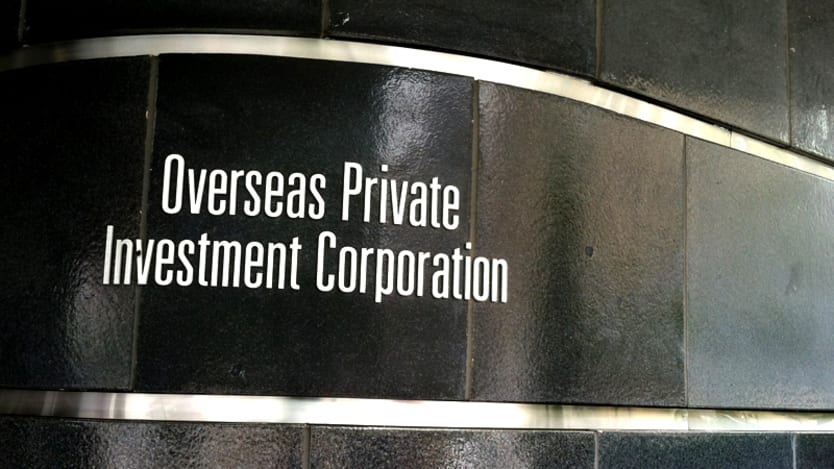
On Tuesday, President Donald Trump announced his intention to nominate Ray Washburne to be the next chief executive of the Overseas Private Investment Corporation.
The announcement didn’t come as a surprise. Devex reported back in February that Washburne was rumored to be the pick to lead the United States development finance agency, which has a $21.5 billion portfolio of loans and guarantees in approximately 100 countries.
Washburne, a Texas-based investor and businessman, served as vice chairman of the Trump Victory Committee and chair of the transition’s commerce team.
He told D Magazine, a Dallas, Texas, magazine, that the job “fits my skill set to a T” and that under his leadership OPIC will work to support what helps American businesses create jobs.
“The Obama administration spent a lot of time on climate change-type stuff. Ours will be more focused on economic development,” he told the magazine.
See more related topics:
► Amid numerous US foreign aid concerns, can OPIC find the support it needs?
► Elizabeth Littlefield on OPIC's growth and changes in development finance
While the decision was made official Tuesday, Washburne has been having conversations with former OPIC officials and others about the agency for several months. Robert Mosbacher Jr., a former OPIC chief executive officer, has spoken with Washburne several times and believes he’ll learn quickly and has good business acumen that should serve him well in the post.
“I think it’s more important that you have good solid business acumen and that you have a heart for development and for the role that the United States can play in encouraging inclusive, sustainable, economic growth,” Mosbacher told Devex. “If you have that commitment, the support you need to get there will come from people who have been at the agency for years.”
Washburne, and David Bohigian, a former Department of Commerce assistant secretary and the managing director of Pluribus Ventures, will make a good team, Mosbacher said.
Elizabeth Littlefield, who was the last president and CEO of OPIC, spoke to Washburne for the first time on Tuesday to congratulate him on the announcement, she told Devex.
They spoke about the agency, the progress made during her tenure and plans to meet in person to discuss more details in the future.
“I was very pleased that he appreciates and is excited to take the organization forward and that we discussed a lot about the ways that OPIC can contribute more with more resources, more flexibility and more instruments,” she said.
Littlefield said she looks forward to working closely with him, and that he is asking good questions about the agency. Her main piece of advice is to trust the staff, which she described as the most “talented, versatile and creative team” she’s worked with in her 35 year career working in emerging markets, development and investment.
“I was very pleased that [Washburne] appreciates and is excited to take the organization forward and that we discussed a lot about the ways that OPIC can contribute more.”
— Elizabeth Littlefield, former president and CEO of OPIC“Certainly follow their lead,” she said. “They’re committed, they’re loyal, they’re really smart and know what works.”
When Washburne’s name first began circulating as the potential pick, OPIC supporters saw it as a hopeful sign for the future of the agency. Their thinking was, Trump wouldn’t appoint a supporter who was considered for other cabinet posts to lead an agency that the administration was shutting down. That optimism was short lived.
Trump’s 2018 budget proposal calls for the elimination of OPIC and allocates a small amount of funding for the agency — $60.8 million, to “initiate orderly wind-down activities.” OPIC supporters find it hard to make sense of the cut, particularly since the agency operates at no cost to taxpayers and has generated about $2.3 billion for the federal government in the past six years.
Whether Washburne will essentially just be shepherding the dismantling of the agency he has been tapped to lead or not is up to Congress, who will also have to approve his nomination.
But Mosbacher said that their conversations have been about the agency and how it could be most effective, not about how to wind it down. He said he didn’t think that the approach Washburne was asked to take was to shut things down.
“I think there are a number of people, in fact a large number, in this administration who both understand and strongly support OPIC and that he will find much support within the administration for continuing to strengthen OPIC as our principal development finance organization,” he said.
Littlefield said that in conversations during the past few months with members of Congress and others in D.C,. she has seen a stronger validation of the agency’s role than ever before. She said there is “growing chorus” of people in Congress — both Republicans and Democrats — and small businesses throughout the country who understand and want OPIC to be expanded and allowed to grow to meet market demand.
“I think actually the Trump administration is going to embrace OPIC in a pretty strong way in the coming years,” she told Devex.
Stay tuned to Devex for more news and analysis of what the Trump administration means for global development. Read more coverage here and subscribe to The Development Newswire.








